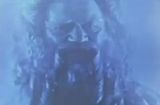It probably bothered any World War II veterans who might catch an episode or two, but that war was still 20 years ago at that time. Public perception of Japan was changing, what with their products slowly gaining favour in North America.
People soon forget for the most part, just notice how quickly the russians were no longer on people's radars shortly after the dissolution of the soviet union by the early 90's.
A japanese character in the late 60's was not as much a potential minefield as a Korean character, or especially a Vietnamese one.
You want controversy? Try to imagine ST: Enterprise introducing an arab main character mid-way through its first season... (for those who don't remember, ENTERPRISE launched on UPN in September 2001)...
George Takei had already starred in a controversial (and rarely-shown) episode of The Twilight Zone, one which dealt specifically with left-over antagonism from WW-II.
http://www.imdb.com/title/tt0734637/




 I just watched it out of curiosity, and she never crossed herself. She kneels at the alter and closes her eyes though.
I just watched it out of curiosity, and she never crossed herself. She kneels at the alter and closes her eyes though.
